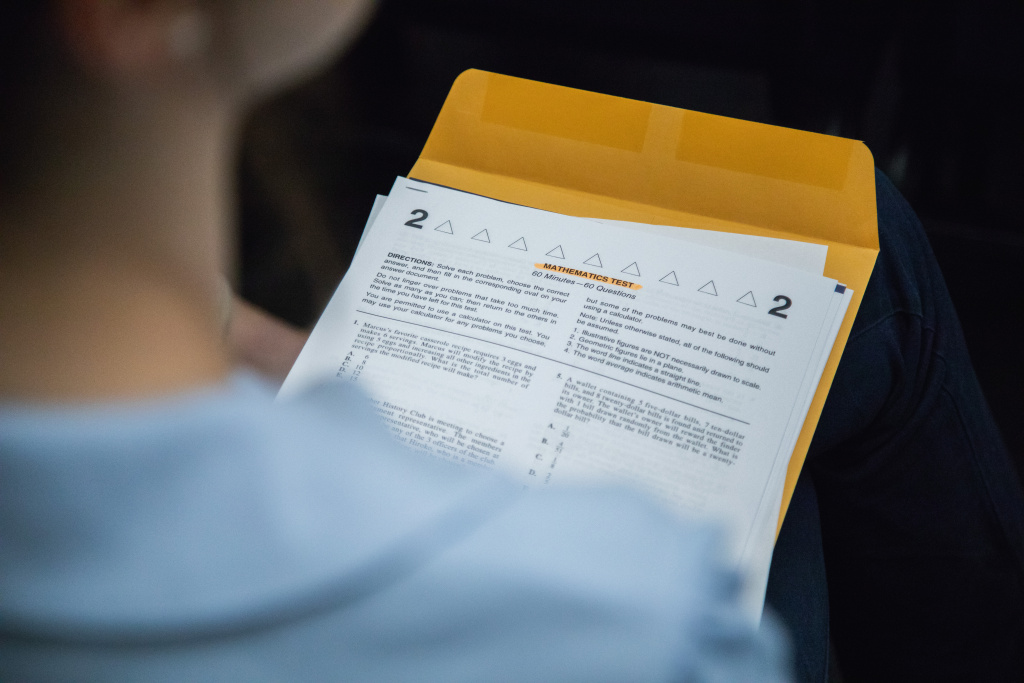College entrance exams are important for several reasons.
First, they can be indicative of what kind of program a student would be best suited to. For example, students with high scores in the math section would do well in a program that uses math. Second, scores are often tied to financial aid packages. Many schools give out scholarships for high scores on college entrance exams. Third, most colleges and universities, including BJU, require a prospective student submit a test score as part of their application.
A look at the three entrance exams:
Classical Learning Test
The Classical Learning Test (CLT) is an online alternative to the ACT and SAT. It is two hours long (without the optional essay). The CLT has three sections: verbal reasoning, grammar and writing, and quantitative reasoning. It is four-answer multiple choice. In some cases, students can take the CLT at home. As it is an online exam, results are available within 10 business days. Over 200 schools accept the CLT, most of which are small religious private schools (such as BJU).
ACT
The ACT is slightly under three hours long. It has four sections — math, science, reading and English — as well as an optional essay section. It is five-answer multiple choice, and the majority of the ACT’s math section is geometry. Formulas are not provided, but students are allowed to use a calculator on the math section. The ACT is accepted by the vast majority of accredited universities in the U.S.
SAT
The SAT is three hours long. It has three sections, not including the optional essay section: reading, writing and language, and math. It is four-answer multiple choice. The math section emphasizes algebra, has calculator and no-calculator sections, and formulas are provided. The SAT is also accepted by most U.S. universities.
Which Test Should You Take?
So there are three different tests, but how on earth do you pick which one to take? “You really have to look at the tests, study the tests and play to your strengths,” Chuck Kittrell said. Kittrell is a national recruiter for BJU with over 30 years of experience. A student who does very well in algebra might do better on the SAT whereas someone who is well-read might do better on the CLT.
Preparing for College Entrance Exams
After you have picked which test you’re going to take, you should start preparing for your exams. A good time to start preparing is the spring of your sophomore year. “I would say the average student could spend anywhere from three to five hours a week (studying) and do well,” Kittrell said.
According to Kittrell, it’s not uncommon for students to spend three to five hours a week on studying over an eight to ten-week period and see scores improve by three to six points on the ACT or by over 100 points on the SAT. “You’d be amazed at how much you could learn by spending that much time taking practice tests,” Kittrell said. There are many college entrance exam preparatory resources, including test books, practice exams and online resources.
The average student should start taking their college entrance exams during their junior year in high school. All three tests allow you to retake the test multiple times if you want to try for a higher score.
While BJU generally has no preference for a singular test and accepts the ACT, SAT and CLT, some colleges prefer one test over the other. Different programs will also have specific preferences at times. Kittrell also recommends that students find out the average college entrance score for their target schools and make that score their goal.
Rewards for College Entrance Exams
What are the rewards for hours of study? Scholarships. While scholarships used to be GPA-based, the majority of scholarships and merit-based financial aid are based on college entrance exam scores. BJU offers numerous renewable merit-based scholarships, starting at $4,500 per year. For more information visit the financial aid website.
Registration deadline for the fall ACT is Sept. 17. For more information on the ACT visit act.org. BJU’s ACT code is 3836.
Registration deadline for the next CLT is Oct. 6. For more information on the CLT visit cltexam.com.
Registration deadline for the next SAT is Oct. 8. For more information on the SAT visit collegereadiness.collegeboard.org/sat. BJU’s SAT code is 5065.
Students can apply to BJU after they’ve completed their junior year of high school.








